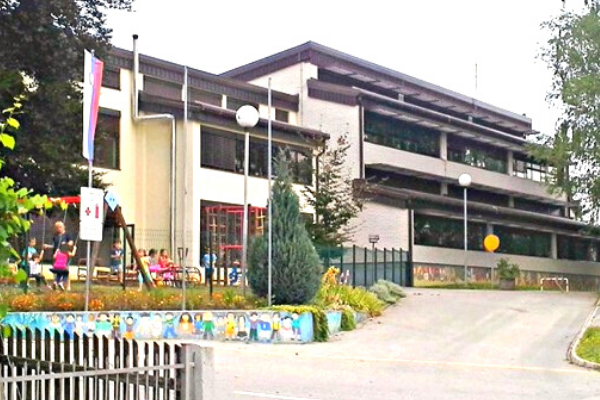
eTwinning in Slovenia: the school in the ‘big valley’

The area is part of the historical Lower Carniola region in eastern Slovenia, and, despite having long disappeared from geographical maps, it still lives in the mind of the Slovenian people who dwell within the former traditional borders of the Duchy of Carniola. Its unique geographic position, close to the border with Croatia, culturally enriches its inhabitants, resulting in a beautiful mélange of cultures.
Velika Dolina has approximately 146 inhabitants, of which 106 students — aged from 6 to 15 — attend the school. The 9-year-long basic education is divided into 3-year-long cycles. Elementary schools provide a compulsory and an extended curriculum. This means that students must study subjects such as geography, history, and mathematics, and they are free to add elective activities such as remedial classes or out-of-school classes.
But there’s more to OŠ Velika Dolina than meets the eye. From 2004 to 2006, the school was one of the four partners participating in the EU-funded international programme INTERREG III — INTERACT, whose aim was to promote interregional cooperation and improve synergies at EU level. Additionally, since 2007, the school has been participating in numerous eTwinning projects, with one of their teachers belonging to the engaged group of eTwinning ambassadors. As such, most of its teachers have international experience in collaborative teaching, and have great computer skills and forward-thinking ideas.
Irena Rimc Voglar is a primary school teacher with 16 years of experience teaching at OŠ Velika Dolina. She shared her views on teaching in a rural school, and how eTwinning has helped improve the quality of teaching and learning.
‘On one hand, one of the greatest challenges of teaching in a rural school is the students’ low-income background. They often cannot travel, go to the cinema, experience life outside their small village, or be exposed to diversity. As the school is their main point of contact with the outside world, we teachers have the responsibility of showing them its different facets to help them keep abreast of innovations.
On the other hand, the small demographic of Velika Dolina encourages a strong collaboration and synergy between our school and the local community. For example, our pupils perform at different local events and, once a year, we organise picnics and hiking activities.
The eTwinning projects have a positive influence on our students. Thanks to eTwinning, students feel like they belong to a much larger community and have the chance to learn about other cultures and ways of living, and improve their social skills, English speaking skills, and technological competences. Additionally, having frequently taken part in videoconferences while working on eTwinning projects, both students and teachers had the opportunity to become more familiar with ICT tools well before the breakout of the COVID-19 pandemic. As such, our school wasn’t heavily impacted by the lockdown as not only were we able to promptly switch to online classes, but we also keep the quality of teaching at the maximum level.’
